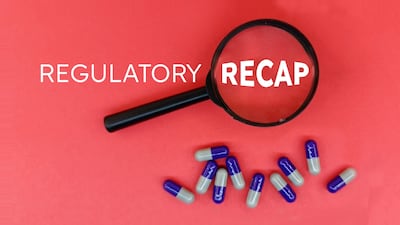
Policy & Regulation
After multiple past attempts, US legislators have once again proposed a bill that would make all biosimilars immediately interchangeable upon approval. Could a fresh political context help it to succeed this time?
Doubling down on the launch of its Stelara biosimilar Pyzchiva in Europe last year, Sandoz has just released an autoinjectable version of the drug, with the aim to offer a more convenient option for ustekinumab patients.
The UK struck three international agreements in May, but two of them failed to include medicines or provide any benefits for the pharmaceutical sector. Medicines UK warned that protecting medicine supplies should be of the same importance as defense.
Sun readies US debut of Leqselvi for alopecia areata, while PD-L1 inhibitor Unloxcyt is in the line up once the Checkpoint Therapeutics deal is completed. Management also discusses limited clarity on President Trump’s most favored nation pricing push, pipeline tweaks and M&A outlook.
After half a year of silence, the US FDA has published 48 product-specific guidances for generic development. With critical staff laid off, will the health agency stick to its updated PSG publishing schedule?
With European biosimilars developers buoyed by recent regulatory moves, Medicines for Europe’s Isabell Remus and Julie Maréchal-Jamil discuss the next steps forward for the industry.
At a busy meeting of the CHMP, the EMA issued positive opinions for Fresenius Kabi’s denosumab rivals to Prolia and Xgeva, another denosumab biosimilar from Sandoz, a Tecfidera hybrid from Neuraxpharm and a Descovy generic from Viatris. Meanwhile, Ascend has withdrawn a teriparatide filing.
Generics Bulletin reviews global regulatory developments across the world.
Cuts to the FDA’s policy and legal personnel have prevented dozens of product-specific guidances for generic drug development from being published.
As the US biosimilars market moves into its second decade, urgent changes are needed at the FDA if biosimilars are to meet their full potential, according to Biosimilars Forum chief executive Julie Reed.
A free trade agreement struck between the UK and India could over “significant benefits for the generic and biosimilar sectors,” Medicines UK believes. The off-patent industry association has also suggested further avenues for collaboration between the two governments on regulatory pathways and supply security.
Dr. Reddy's Laboratories preps for potential US tariffs, focusing on sustaining product supply and collaborating with customers on inventories. A recent US plant sale, the firm stressed, was unrelated to tariffs and underlines its openness to ‘make in the US’, where it launched 18 products in fiscal 2025.
Donald Trump’s executive order on most-favored-nation prescription drug pricing could provide positive opportunities for the off-patent industry, although US generics and biosimilars association the AAM suggested that the administration might do more good by focusing elsewhere.
Commissioner Martin Makary’s repeated characterization of foreign facilities as being subject to lower standards than domestic counterparts may have contributed to Rogers’ decision to retire as head of the recently formed Office of Inspections and Investigations.
An executive order from US president Donald Trump aimed at incentivizing domestic manufacturing of critical medicines has been welcomed by the US Association for Accessible Medicines.
The market for biosimilar rivals to Stelara continues to be hotly contested in the US, with partners Teva and Alvotech claiming a boost from an interchangeability designation at the same time as Biocon Biologics highlighted fresh market access agreements.
Reflecting on recent initiatives by NHS England and the MHRA, the newly renamed trade body Medicines UK has welcomed efforts in promoting the use of biosimilars in Britain.
During Organon’s first-quarter results call, CEO Kevin Ali discussed the exposure of the biosimilars business to US tariffs, as well as pointing to the recent acquisition of Tofidence (tocilizumab-bavi) from Biogen as an opportunity for growth, as the segment saw a double-digit decline.
As Sandoz continues development of its planned pembrolizumab biosimilar rival to Keytruda, the company has revealed plans to slim down its Phase III trial amid the latest moves from regulators towards streamlining clinical study requirements for biosimilar registration.
During the “CEOs Unplugged” panel at the AAM’s annual conference in February, leaders from Sandoz, Lupin and Amneal discussed the various ways in which the US framework is making life difficult for generics and biosimilars.



















